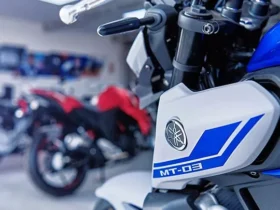Weighbridge systems help ensure adherence to weight regulations, enhance road safety, and safeguard infrastructure. However, legal considerations and adherence to standards are vital aspects of truck weighing, as improper or inaccurate weighing can result in legal and financial repercussions for businesses.
This article explores the legal considerations and standards associated with truck weighing on weighbridges.
Legal Requirements for Truck Weighing
One of the primary legal considerations for truck weighing is ensuring compliance with government regulations regarding maximum weight limits for vehicles. In most countries, regulations dictate the weight limits for vehicles based on their type, size, and purpose. Overloaded trucks can lead to accidents, increased wear and tear on roads, and environmental damage. Therefore, businesses must use certified and calibrated weighbridges to ensure compliance with these limits.
Weighbridge Certification and Calibration
For weighbridges to be legally valid, they must meet specific national and international standards. These standards include periodic calibration and certification to ensure the accuracy of the weight measurements. Certification bodies, such as the National Institute of Standards and Technology (NIST) in the U.S. or the International Organization of Legal Metrology (OIML), provide guidelines for the calibration and maintenance of weighbridges.
Weighbridges should undergo regular inspection and calibration to maintain legal compliance. Failure to calibrate and certify a weighbridge can result in penalties or legal disputes, especially if the weights are contested in court. Calibration must be performed by authorized personnel using appropriate reference weights and equipment to guarantee precision.
Accuracy Standards
Accurate weight readings are essential for legal compliance. Most jurisdictions specify the level of accuracy required for weighbridges, which may vary depending on the load being measured and the type of vehicle. These standards ensure that weighbridges can detect discrepancies in weight and identify potential overloading, which could result in safety violations.
To ensure accuracy, weighbridges should be checked against certified test weights, and the calibration process must consider factors such as environmental conditions (e.g., temperature and humidity), vehicle suspension types, and the type of goods being weighed. Inaccurate readings can lead to legal actions, including fines and penalties for exceeding weight limits or under-reporting truck loads.
Environmental and Safety Regulations
In addition to weight regulations, businesses must also adhere to environmental and safety standards when operating weighbridges. Environmental regulations may include the management of runoff from truck wash stations and the disposal of waste materials. Weighbridge operators must ensure that the area around the scale is clear of debris and that any wastewater is disposed of in accordance with environmental guidelines.
Safety regulations are crucial to protect operators and workers around the weighbridge. Proper signage, barriers, and regular safety training are necessary to ensure that individuals do not inadvertently step into hazardous areas, especially when heavy trucks are being weighed.
Consequences of Non-compliance
Non-compliance with weighbridge regulations can lead to significant consequences for businesses, including hefty fines, the suspension of operations, and even criminal charges in severe cases. Overloading can also cause damage to public infrastructure, leading to lawsuits and costly repairs. In addition, inaccurate weight records may lead to disputes with customers, suppliers, or regulatory bodies, further harming a business’s reputation.
Conclusion
Legal considerations for truck weighing on weighbridges are essential for businesses to remain compliant with road safety, weight regulations, and industry standards. By ensuring that weighbridges are certified, calibrated, and maintained in accordance with relevant laws, companies can avoid legal issues, reduce operational risks, and contribute to safer transportation practices.
Moreover, adhering to environmental and safety regulations helps ensure that weighbridge operations are sustainable and safe for all involved.











